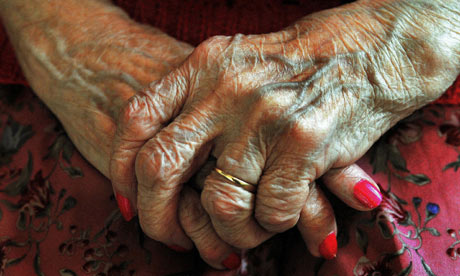
Two-thirds of people aged 80 or over could be diagnosed with dementia in future because doctors are subjecting patients to needless investigation for and potentially damaging treatment of the disease, experts say.
The specialists in dementia, geriatric medicine and public health claim the growing trend towards older people having their risk of dementia assessed could lead to considerable over-diagnosis.
"The current prevalence of dementia is thought to be 10-30% in people over the age of 80, but the adoption of new diagnostic criteria will result in up to 65% of this age group having Alzheimer'sdisease diagnosis and up to 23% of non-demented older people being diagnosed with dementia," say the British and Australian experts, writing in the British Medical Journal.
They criticise government moves to increase the early diagnosis of dementia by identifying more people as soon as possible with mild cognitive impairment, or pre-dementia, which can be a precursor of the condition, such as through cash incentives to GP surgeries and establishing a network of memory clinics.
They claim the "political drive" in the UK and US towards early diagnosis is not backed by evidence of benefit and is part of a pointless "war against dementia" that is producing more commercial opportunities for firms that sell testing tools rather than helping patients at risk of developing the condition.
"Only 5% to 10% of people with mild cognitive impairment will progress to dementia each year, and as many as 40%-70% of people do not progress or their cognitive function may even improve," write the authors, who include Carol Brayne, professor of public health at Cambridge University.
In addition, "the neuropathology of mild cognitive impairment does not support the concept that most people with this condition are in the early stages of Alzheimer's disease," they say.
Supporters of the drive towards early diagnosis say foreknowledge that someone may develop dementia can let them draw up instructions for their future care, put their financial affairs in order and make lifestyle changes, such as eating healthily and taking more exercise, that will slow the disease's progress.
But the authors claim that an early diagnosis can lead to patients taking unproven therapies such as gingko biloba to try to delay the onset of dementia, suffering stress, distress and possible stigma, or even contemplating suicide or euthanasia.
http://www.theguardian.com/society/2013/sep/10/dementia-over-diagnosis
No comments:
Post a Comment